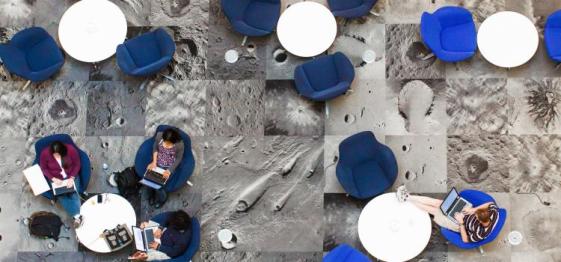A message to ASU faculty from The University Academic Council
Categories:

Without question, we are in a unique moment of our careers. Arizona State University has transitioned to different modes of teaching in order to respond to our primary mission to educate the students who come to us, and to work as safely as we can during this pandemic. There are many questions about our work conditions, or even whether our campuses should be open at all.
Serving on the University Academic Council (the body of elected faculty Senate leaders) has allowed us a closer look at the work that is going on in the president’s and provost’s office. Most faculty and community members typically do not see much of this. The UAC meets frequently with both the president and provost to learn of the efforts that are underway to keep the faculty, students, staff, and work environments safe, while advancing the mission of Arizona State University. We have the opportunity during these meetings to engage them openly and frankly with questions and to express our concerns. We know they listen carefully because we have seen them take actions that address these concerns.
Arizona State University has been alert to, anticipating, and actively addressing the concerns of COVID-19 since last January and earlier. President Crow and his university leadership team has called upon our partners in the Mayo Clinic and worked closely with our own faculty colleagues who have the necessary expertise in relevant fields not only to combat the disease but to develop the COVID-related policies and protocols that are now in place at ASU. Across the administration, from student services to faculty administration, options and alternatives, safeguards and contingencies have been carefully thought through, discussed, planned, implemented, assessed, and corrected. Nothing, as far as humanly possible, has been left to chance as far as we can discern.
The conditions we are working through now, this semester, are challenging. Many of us are being forced to rethink what we do and how we do it—in our physical and virtual classrooms on and off campus, in our research spaces, and in the spaces where we engage with the communities we serve. It is not easy work, nor are these conditions ideal. Furthermore, the situation is dynamic, and there will likely be more questions and more discussion as we proceed. But we are heartened that President Crow and Provost Searle have consistently shown us respect as faculty, faith in our ability to meet the current challenges, and a commitment to listening to our concerns, and they have responded thoughtfully with careful and thorough explanations of their reasoning.
As University Senate leaders, we recognize the value of these open channels of communication and know the critical importance of keeping them open, particularly during these unpredictable and stressful times. We urge our faculty colleagues who have questions and concerns to address them directly to Dr. Crow and Dr. Searle. We also invite you to bring such issues to University Senate leadership and we will be happy to relay them confidentially, follow up regarding your concerns, and inform you of what we learn.
The University Academic Council:
Simin Levinson, Chair
Eduardo Obregón Pagán
Shirley Rose
Ken G. Sweat
LaDawn Haglund
Penny Ann Dolin
Johannah Uriri-Glover
Ann Sebren
Chris Kyselka
Greg Stone
Mary Burleson
Tamara Rounds
Yun Kang
John Dallmus